This lens is collapsible.
Focal length: 50mm
Mount: M39
Aperture: F 3.5 - F 16
Min focus distance: 0.9m
Length (from flange): 15/36mm [+ 11mm for the adapter], tube protrudes 22mm to the back when
collapsed
Diameter: 47mm (base)
Weight: 109gr.
Some pictures:
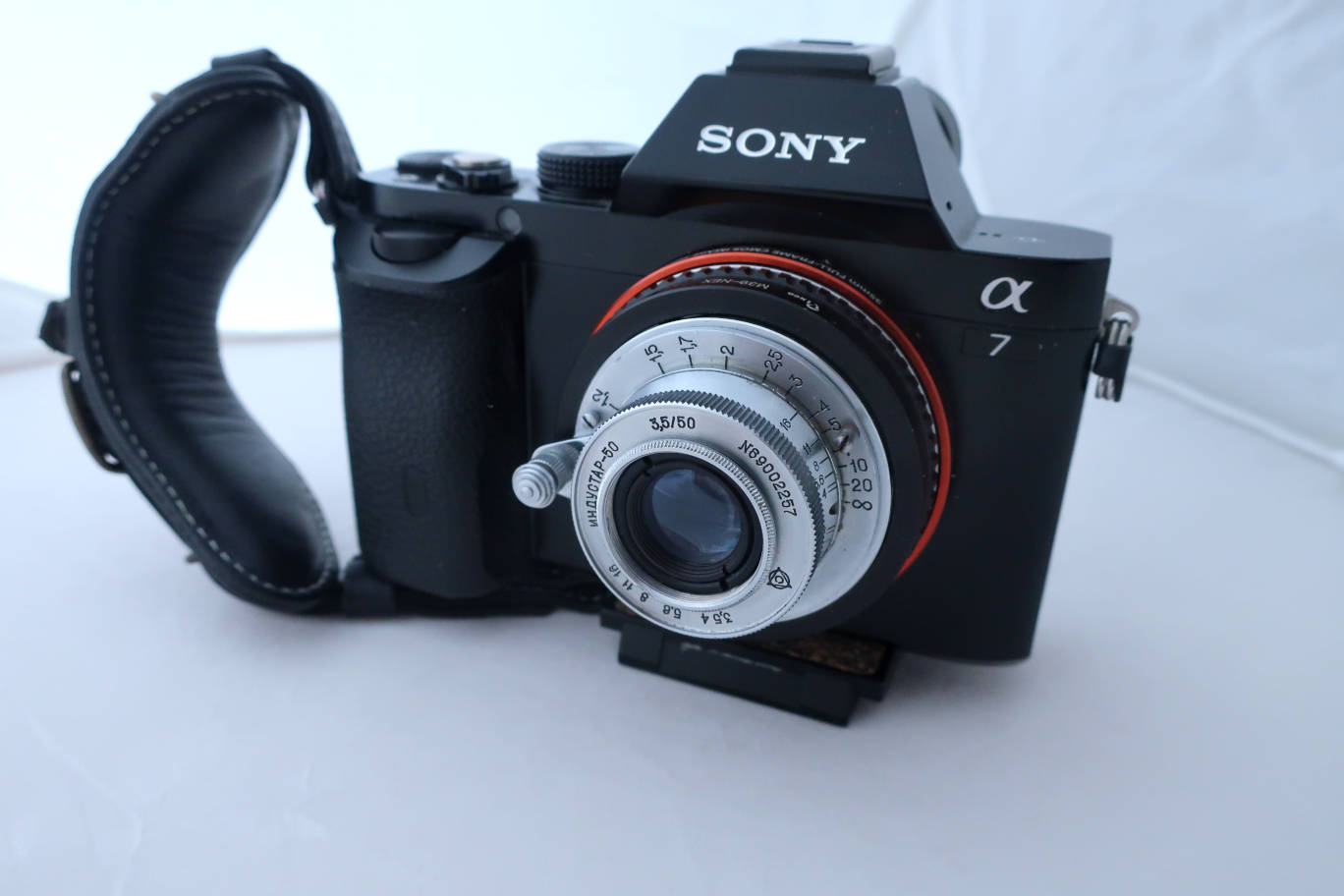
A7 and the lens, collapsed
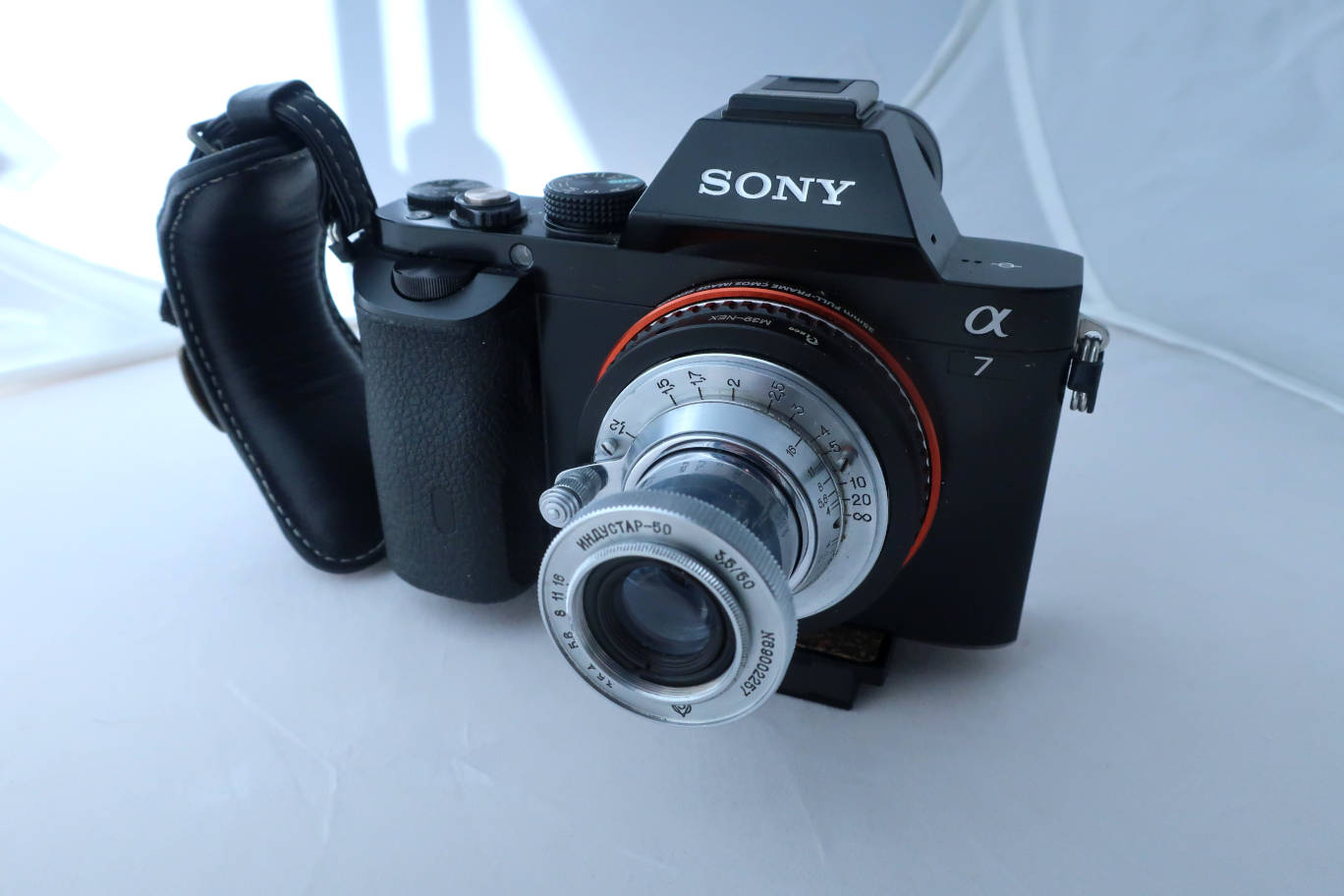
A7 and the lens, extended.
Sample pictures, ISO 200: You may click
on the sample image (except closest focus) for full resolution. The
full resolution image opens in a new window, so you can keep it open
for comparison.
Focus is on the
satellite
dish to the right of the big solar panel near the center of the photo.
There is some dust on the sensor.
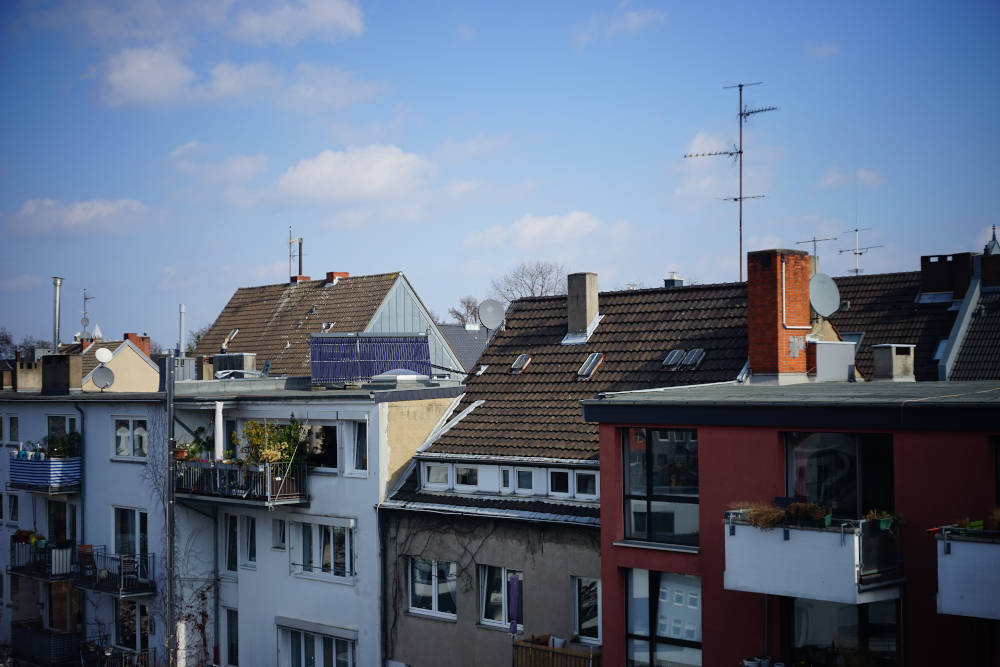
F 3.5.
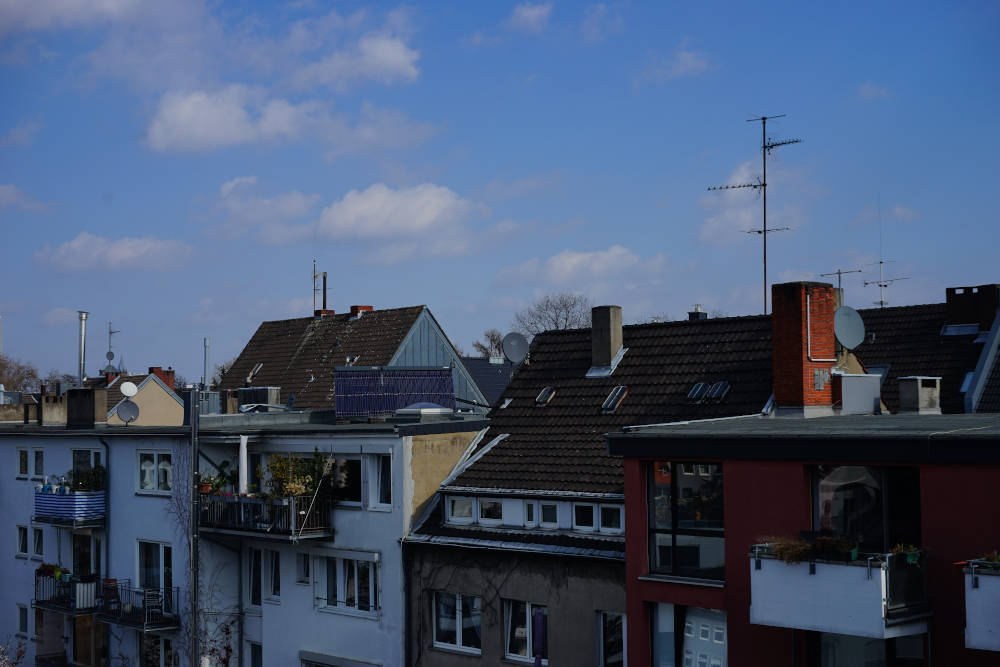
F 8.
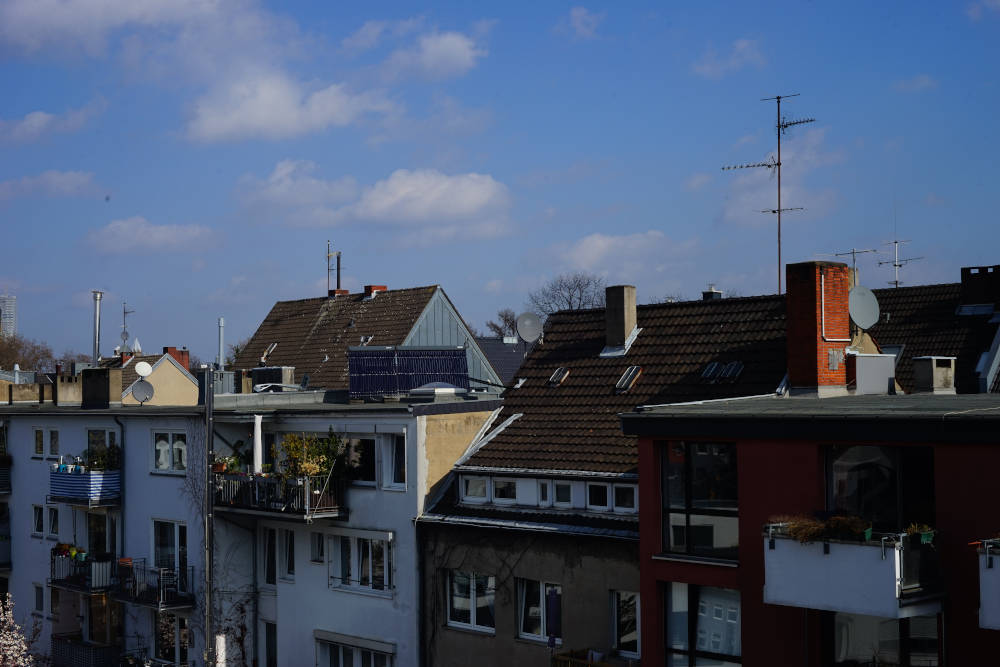
F 16.
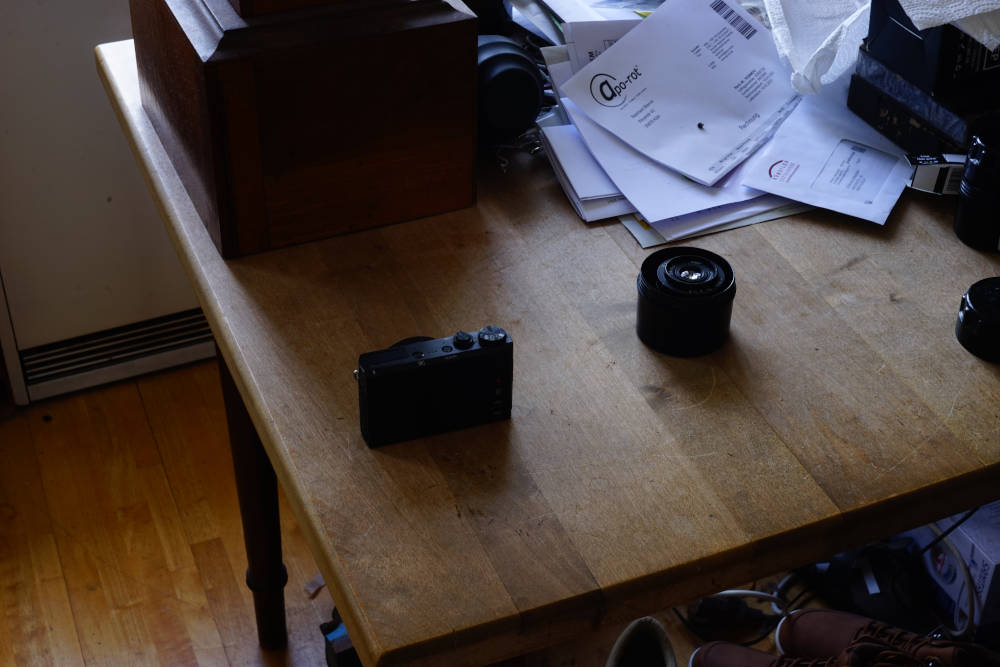
Closest focus is ~ 0.9m from
outermost
edge of the lens, F 8. Focus on
the program wheel of the camera.
This lens is an Industar-50. It's a Zeiss Tessar
formula, 4 elements in 3 groups. Elements 3 and 4 are cemented. It's said that it was copied from the Leitz Elmar, which is the Zeiss design.
The lens is coated and has the serial number on the front. According to
the number it's from 1990, a very late lens. It has a push button lock
for infinity, as the Industar-22. Depending on your adapter, the
push button can be a problem.
Already
wide open
picture quality is o.k, it's a bit soft towards the edges. Stopped down
it's astonishing for such a simple lens design. Have a look at the full
resolution image
at F 16 and you know what I mean. The lens has no
close focussing capablities. It is very small, lightweight and quite
cheap. A
very nice legacy lens to start with.
This
lens is collapsible. There is enough room iside the A7 to collapse it,
at least with my version, but you have to try at your own risk. Please
proceed slowly, you don't want to aspire dust into the camera. It's an
extremely small and lightweight lens.
The
lens can not be fully collapsed into the A6000. It touches the plastic
around the opening for the sensor. If you push cautiously, it collapses
quite a bit, but again it's at your risk.